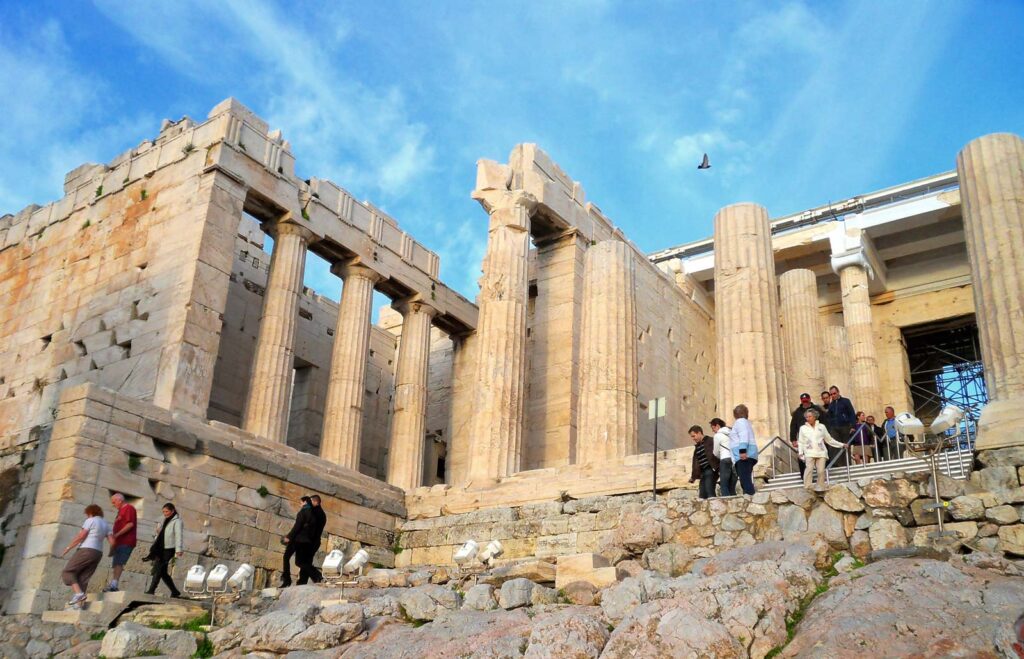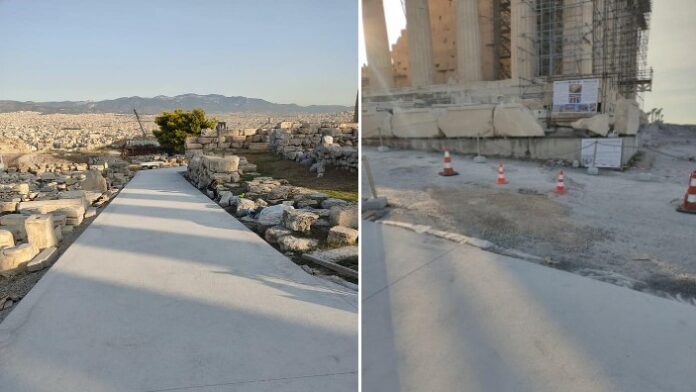Dozens of archaeologists, university professors, and others around the world have signed an open letter protesting a series of renovations planned for the Acropolis in Athens, a UNESCO World Heritage Site.
In the letter, which was recently revealed by the Art Newspaper, the signatories say the plans would be “equivalent to the degradation, concealment, and devaluation of the greatest archaeological and artistic treasure that has been bequeathed to modern Greece, in which humanity has entrusted its preservation.”
READ MORE: Greek PM inaugurates new disabled-friendly pathways and lifts for Acropolis Hill.

According to the Art Newspaper, these plans were unanimously approved by the Central Archaeological Council on February 3, after a proposal made by the architectural restorer Manolis Korres, the president of the Acropolis Monuments Conservation Committee (ESMA). Following this approval, the Greek Ministry of Culture announced that a comprehensive scientific study will be carried out in the autumn.
The focus of the plan is on the restoration of the ascent to the Acropolis, including a large marble staircase constructed in the first century AD and the return of an ancient southern access to the terrace.
READ MORE: Greece unveils spectacular new lighting for the Acropolis.
This latest renovation is also intended to improve access and traffic management of visitors and, according to a statement from the Ministry, “remove erroneous interventions of the past.”

However, the opposition state in their letter that the plans are “contrary to the internationally recognised and established principles concerning the preservation, conservation and safeguarding of antiquities” and “mark an extremely dangerous path.”
While the Ministry did not respond to the Art Newspaper‘s request for comment, a statement released on March 15 rejected the letter’s concerns, maintaining that the planned renovations will return the Western entrance to its “original ancient form” based on “exhaustive archaeological-architectural documentation.” Meanwhile, the oldest sections of the architecture “will remain visible and accessible.”
Renovations to the Acropolis, one of the world’s most treasured archaeological sites, are often met with controversy. The last example came last fall, when the ministry upgraded old walkways with reinforced concrete, ostensibly to make them more accessible to people with disabilities.

READ MORE: Greece’s Culture Ministry slammed for laying cement on sections of the Acropolis.
However, the signatories of the open letter contended that the changes were made just to “accommodate even larger crowds of summer tourists.”
Open-air archaeological sites were finally reopened in Greece on March 21, following the ongoing national lockdown that began in November 2020, allowing the public and the wider archaeological community to see the impact of the works so far.
The Greek government is desperately trying to push forward with its typical summer season-—despite the ongoing COVID-19 pandemic—that is a vital part of the national economy.
READ MORE: Greece’s entire Acropolis Museum is now digital.
Source: Art Newspaper.
